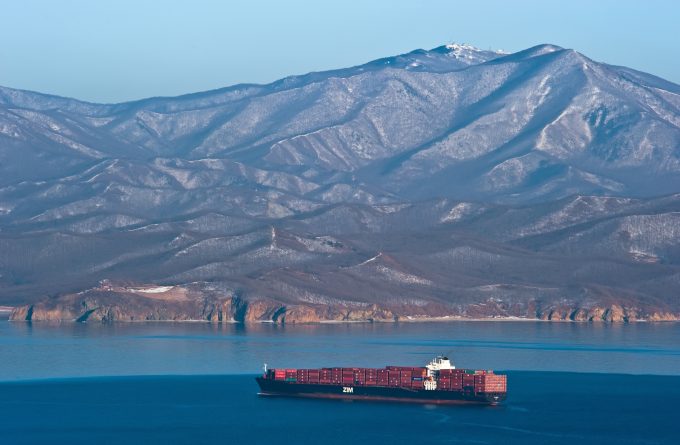'Challenging' Q3 for DFDS – and weaker demand expected to continue
Danish ferry and road freight operator DFDS saw weaker road freight demand across Europe in ...
ATSG: UPDATEMAERSK: QUIET DAY DHL: ROBOTICSCHRW: ONE CENT CLUB UPDATECAT: RISING TRADEEXPD: TRUMP TRADE LOSER LINE: PUNISHEDMAERSK: RELIEF XPO: TRUMP TRADE WINNERCHRW: NO JOYUPS: STEADY YIELDXPO: BUILDING BLOCKSHLAG: BIG ORDERLINE: REACTIONLINE: EXPENSES AND OPERATING LEVERAGELINE: PIPELINE OF DEALS
ATSG: UPDATEMAERSK: QUIET DAY DHL: ROBOTICSCHRW: ONE CENT CLUB UPDATECAT: RISING TRADEEXPD: TRUMP TRADE LOSER LINE: PUNISHEDMAERSK: RELIEF XPO: TRUMP TRADE WINNERCHRW: NO JOYUPS: STEADY YIELDXPO: BUILDING BLOCKSHLAG: BIG ORDERLINE: REACTIONLINE: EXPENSES AND OPERATING LEVERAGELINE: PIPELINE OF DEALS

Israeli shipping line Zim reported a massive turnaround in its nine-month fortunes today: an adjusted net profit of $51.3m comparing with a loss of $151.3m in the same period last year.
And most of that gain came in the third quarter, the line revealed, reporting an adjusted net profit for the period of $36.2m, compared with adjusted net losses of $40.4m in Q3 16.
Third-quarter volumes grew 10.6% year-on-year, to reach 688,000 teu, and total revenue was $816.7m, a 26.8% increase on the $643.9m it earned last year.
As well as higher volumes, this was due to dramatic improvement in freight rates, from which almost every carrier has benefited – Zim’s average freight rate in the third quarter was $1,058 per teu, a 19.2 % increase over the $887 per teu it earned in the corresponding period in 2016.
“Zim’s encouraging third-quarter results are a cause for optimism, and we hope they reflect a momentum that we can keep up in the coming quarters,” said president and chief executive Eli Glickman.
“However, we still face many challenges, including the uncertainty of market conditions, including freight rates & bunker prices.”
But he added: “I believe we are on the right track, as we continue to outperform the industry thanks to our unrelenting focus on profitability, efficiency and a customer-orientated approach.
“We are currently in the process of finalising our 2018 budget, designed at increasing the pace of our strategy implementation and embracing fresh technological initiatives, as part of our vision to offer our customers new and best-in-market services.”
Last week, the line completed a trial project: a bills of lading blockchain initiative that saw forwarder Sparx Logistics issue, transfer and receive all documentation on a shipment of containers from China to Canada via an electronic ledger developed by Wave Ltd.
The blockchain-based system uses distributed ledger technology to ensure that all parties can issue, transfer, endorse and manage shipping and trade-related documents through a secure decentralised network. Zim says the application is free for shippers, importers and traders and requires no IT or operational changes.
Chief information officer Eyal Ben-Amram said: “Promoting innovation and technology in our industry is an integral part of Zim’s vision. While we are still in the process of evaluating the technology, we are confident that this type of forward-looking ideas will advance our industry as a whole towards a more efficient and modern phase.”
Wave chief executive Gadi Ruschin added: “Moving to a digital bill of lading would be hugely beneficial in supporting the supply chain in general, through reduced costs, error-free documentation and fast transfer of original documents.”
Comment on this article